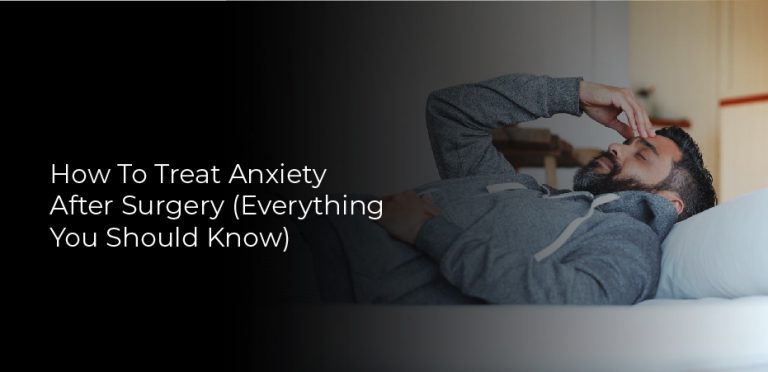
It is common for people to experience depression after surgery. A change in routine, ongoing health problems and discomfort can all contribute
The recovery process from surgery can be adversely affected by mental health issues. A person with depression may also perceive or experience postoperative pain more strongly after surgery.
It is easier to manage depression after surgery if you understand what causes it and what you can do about it. This article examines the relationship between surgery and depression. Why it happens and what can be done about it are discussed.
Anxiety Before Surgery
When the body experiences anxiety, it usually manifests as feelings of nervousness, tension, and worried thoughts as a reaction to an upcoming event. It’s normal for people to worry about surgery, the recovery process, finances, childcare, and other disruptions to their routine. Anxiety can result from all of these factors.
When the body experiences anxiety, it usually manifests as feelings of nervousness, tension, and worried thoughts as a reaction to an upcoming event. It’s normal for people to worry about surgery, the recovery process, finances, childcare, and other disruptions to their routine. Anxiety can result from all of these factors. The following signs may indicate that you’re anxious about a specific event: Feeling a knot in your stomach or butterflies in your stomach before an event, feeling nervous throughout an event Having thoughts like, “What if this doesn’t work?
Signs of Anxiety
- Feeling nervous
- Feeling restless or tense
- Trembling
- Rapid breathing
- Increased heart rate
- Sweating
- Upset stomach, diarrhea, and nausea
- Overall lethargy
- Insomnia
An anxiety attack can occur when anxiety reaches extreme levels. The symptoms of an anxiety attack include shortness of breath, sweating, and an increased heart rate. You can prevent anxiety attacks before surgery by taking steps to calm your mind about your upcoming Procedure.
Calming Yourself Down Before Joint Surgery
Recovery times are shortened when a positive attitude is maintained. These tips can help you relieve worries or anxiety before an upcoming surgery.
Be Informed.
Discuss the upcoming Procedure with your doctor and nurses and ask questions. Knowing what to expect before, during, and after surgery can make the whole experience less frightening.
After the Procedure When you leave the operating room, you’ll be taken to a recovery room. There you’ll be closely monitored by nurses and doctors who will give you medications to help control pain and keep you comfortable. You may have an intravenous (IV) line in place so you can receive fluids and medications. You may be given a sponge bath, a shower, or both. Your nurse will monitor your vital signs regularly throughout the day and night. In the days that follow, you’ll have a lot of time to rest and recuperate.
Use Guided Imagery.
On the day of surgery, visualize yourself waking up confidently and calmly and going to your appointment. It is important to imagine that everything will go smoothly and that you will recover quickly. After you have recovered, consider how much better you will feel and what fun things you will be able to do.
Pause And Relax.
When you feel anxious, relax and take a break from the task you are currently working on. Some ways to relax include taking a walk, listening to your favorite music, writing in a journal or calling a friend.
- If you can’t take a break immediately, get up and move around for a few minutes before returning to the task you were working on.
- When you do decide to resume work, make sure that you pace yourself, using only as much time as you need to complete the task at hand.
- Remember that you are not alone. You can choose when and how to work and have the support of others who care about you.
- It is important to make sure that your work environment is conducive to relaxation.